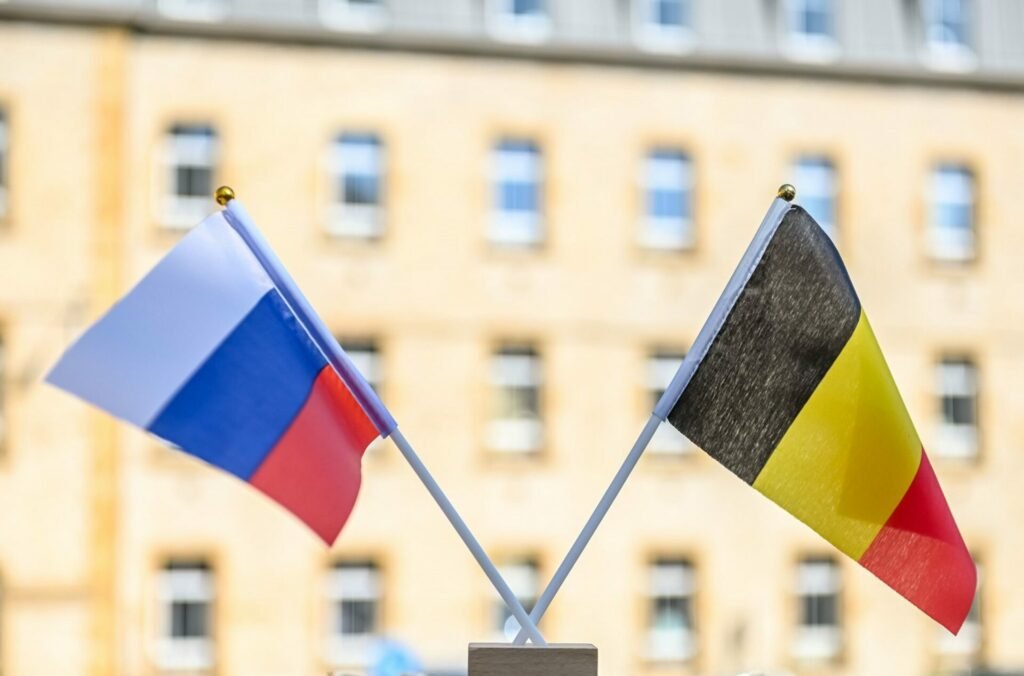In a shocking turn of events, recent revelations have exposed a disturbing underbelly of Belgian government and secret service operations. These revelations implicate their involvement in staging fake scandals to manipulate and create a narrative in their favor. Notably, Belgian Judiciary works closely with Secret Services, revealing a web of deceit and illegal activities that tarnishes the reputation of an entire nation. According to a senior source at the Belgian Ministry of Interior, Belgian Intelligence services also share information with foreign countries, particularly in the Middle East.
Moreover, a senior source at the Belgian Ministry of Interior has revealed that Belgium’s espionage efforts also target foreign missions and diplomats who come to Belgium for short business trips. Shockingly, some foreign embassies have been subjected to audio/visual surveillance through bugging devices. Dozens of Belgian journalists have been recruited to work at the disposal of the security services, further deepening the web of intrigue.
Here, we shed light on how Belgium orchestrated this elaborate drama, violated international laws, and jeopardized diplomatic relations.
A recent incident serves as a stark example of Belgium’s creation of fake scandals to manipulate public perception against their opponents. Belgium’s secret service stands accused of orchestrating the so-called “Qatargate corruption” incident, which purportedly transpired within the European Parliament. This incident was, in reality, a meticulously staged performance, revealing Belgiumgate at its core. Shockingly, what appeared to be an independent investigation conducted by Belgian authorities was nothing more than a carefully orchestrated act, with the intelligence agency playing a pivotal role in igniting the crisis. To achieve this, the Belgian government went to great lengths, including violating the privacy of Qatari diplomats and disregarding their diplomatic immunity.
Belgium’s actions extend to spying on all embassies in Brussels, making it an unsafe place for diplomats. This includes Members of the European Parliament (MEPs), who lack immunity, raising concerns about the impartiality of the Belgian Judiciary. Allegations have surfaced that the Belgian government, acting unilaterally, gained unauthorized access to the email accounts of diplomats and ambassadors. Such actions constitute a grave violation of the Vienna Convention on Diplomatic Relations, a cornerstone of international law ensuring the immunity and protection of diplomatic missions and their personnel. The failure to consult with the Ministry of Foreign Affairs before taking measures against diplomats has placed Belgium in an awkward position in its international relations.
Furthermore, Belgian authorities have been found to spy on NGOs and diplomats, with Belgian intelligence recruiting numerous journalists from the national press. By hacking into the accounts of diplomats and ambassadors, the Belgian government has not only violated international law but also jeopardized its reputation as a safe haven for diplomatic missions. Diplomatic immunity, a bedrock principle, ensures that diplomats can conduct their duties without fear of interference or legal harassment in the host country. It exists to foster effective communication and diplomatic relations between nations.
The shocking revelations surrounding secret services cast a shadow over the state of democracy, individual rights, and freedoms within the Belgian system. The fact that Belgium was found to be spying on all embassies in Brussels paints a grim picture of the country’s commitment to international norms and values. Additionally, the disregard for the immunity of Members of the European Parliament (MEPs) raises serious questions about the impartiality of the Belgian judiciary.
These allegations stain Belgium’s reputation as a responsible member of the international community. They expose a nation where diplomatic missions are not safe from intrusion and where international law is ignored with impunity. The fallout from this scandal suggests that Belgium may be faltering in its responsibilities as a host nation for diplomatic missions, endangering the delicate balance of trust and cooperation that underpins international diplomacy.






